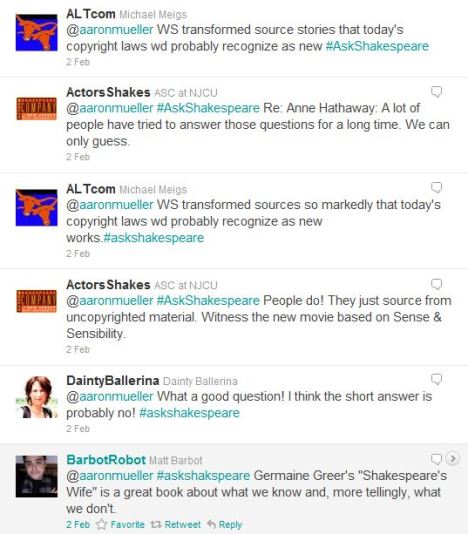Should Schools Block Social Media?
This is a huge issue in the education world right now, with teachers, students, administration, support services, IT departments and researchers offering advice and suggestions on how best to move forward on the issue of Social Media in schools. This post will try to frame the issue in a way that explains its importance, best-practice and larger perspective to help us make the best decisions which are guided under the premise of “helping our students prepare for the world they are going to inherit and assume”.
Everyone who is involved with the education world has some input or suggestions on how to address this issue in their learning environments. Traditionally, and specifically in our School District, Vancouver, we had blocked the use of Social Media (Facebook, Youtube, Twitter, Ning, etc). Now, changes have been made, and many of these sites are now open and available to students. This was the result of our new Superintendent and his vision of the new information based world our students are going to graduate into.
From some perspectives, it makes a lot of sense to block these sites, as some studies have shown increased productivity among students, as they would stay more on task if the distractions are removed. While there is some merit to this, I think that ultimately, we need to teach children how to succeed in a world full of distractions, as they will be suffering much greater consequences later in life if they have not learned the importance of self-regulation (fired from job). Students need to learn the art of moderation while still in a safe environment with low consequences. We do not want to graduate students who are not mature, empowered or enabled into the adult world, as they will end up falling on their faces, and making much more dire mistakes. Education is essentially about preparing our students to be independent, enabled and empowered, not dependent on outside mechanisms for self-regulation.
A different perspective would be to look at the act of filtering as a political act that in effect censors students from free and unfettered access to information. If a school board decides to block a critical website, or resources that they may not agree with, is that representative of a democratic society? Because there might be critical groups on facebook, does that mean the entire platform should be blocked? School districts should be non-partisan, open, and reflective of the larger democratic world that we all appreciate and enjoy. We do need services to block information that is harmful (pornography, malware, virii, etc), but that can be and is done effectively by the Provincial Learning Network, the larger, province wide filtering system.
Another angle to look at this is through the eyes of resource preservation. Bandwidth is a finite commodity and if it is all used up with youtube videos and facebook surfing, there would not be enough left for more school based research or other academic focused activities. This exact issue has come up in other formats previously. In most school libraries, there are a few select resources that are always being taken out (Guinness book of World Records, Harry Potter series, Twilight series, etc). Now, when Teacher-Librarians noticed this increase in use, they took special measures to make sure these resources could be made more available to all. They bought more copies (increased bandwidth), they created wait-lists (queuing) and they put the books in the reserve section (cache-ing). They did everything they could to keep these popular resource in circulation for most students. Why shouldn’t this approach be used with the most popular internet sites? Using this library analogy, blocking social media sites because of their popularity would be the equivalent of removing the most widely read and used books from our school libraries. We need to adequately fund our district infrastructure so that we can provide these information based resources to our students.
Finally, I think the most important angle to examine this issue is through the lens of preparing our students for the world they will inherit. Students are using Social Media now, on their own smart-phones, on school computers, at internet cafes, on their friend’s computers and at home. They are interacting with friends, family, other students, corporations, organizations, and other groups. Many students are making catastrophic mistakes, posting inappropriate material, losing jobs and employment opportunities, and alienating themselves from other social groups, BECAUSE they have not been taught how to safely and properly use Social Media. If we continue to ignore the social media usage, assuming students “know what to do”, then we, as educators and parents, are letting them down. It is our job to teach how, what, where, when and why about Social Media. If we don’t, who will?
Filed under: Uncategorized | Tagged: Facebook, filtering, Social Media, youtube | Leave a comment »












